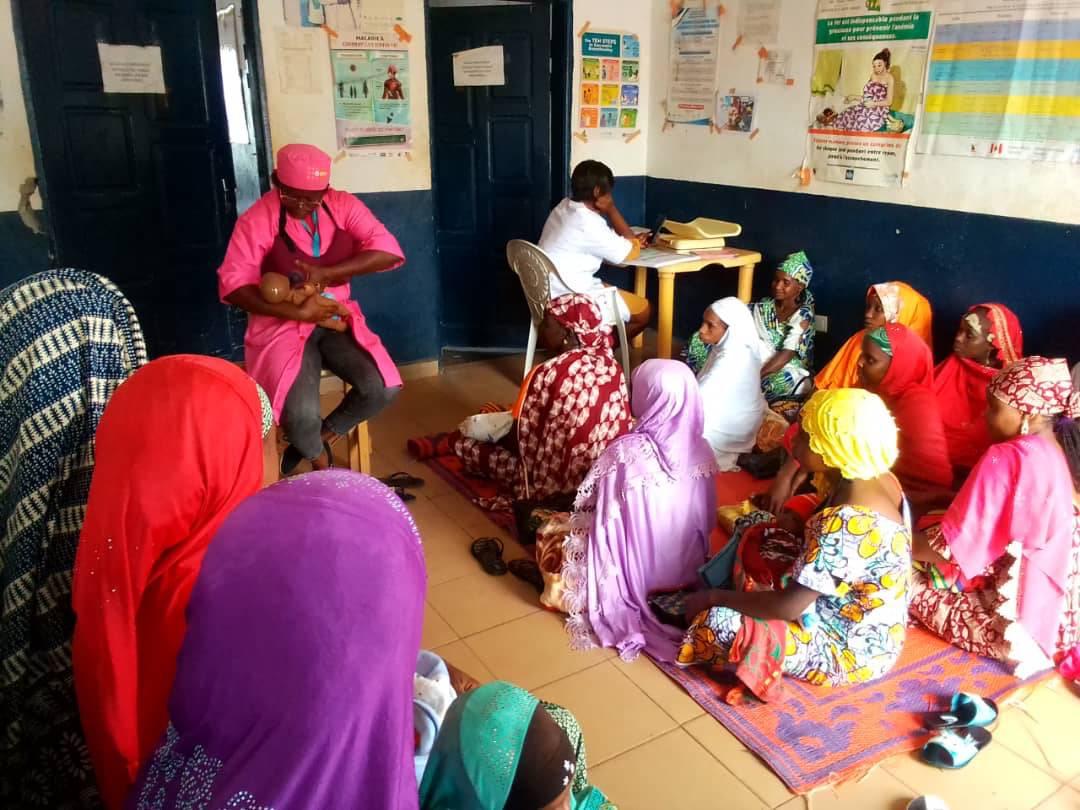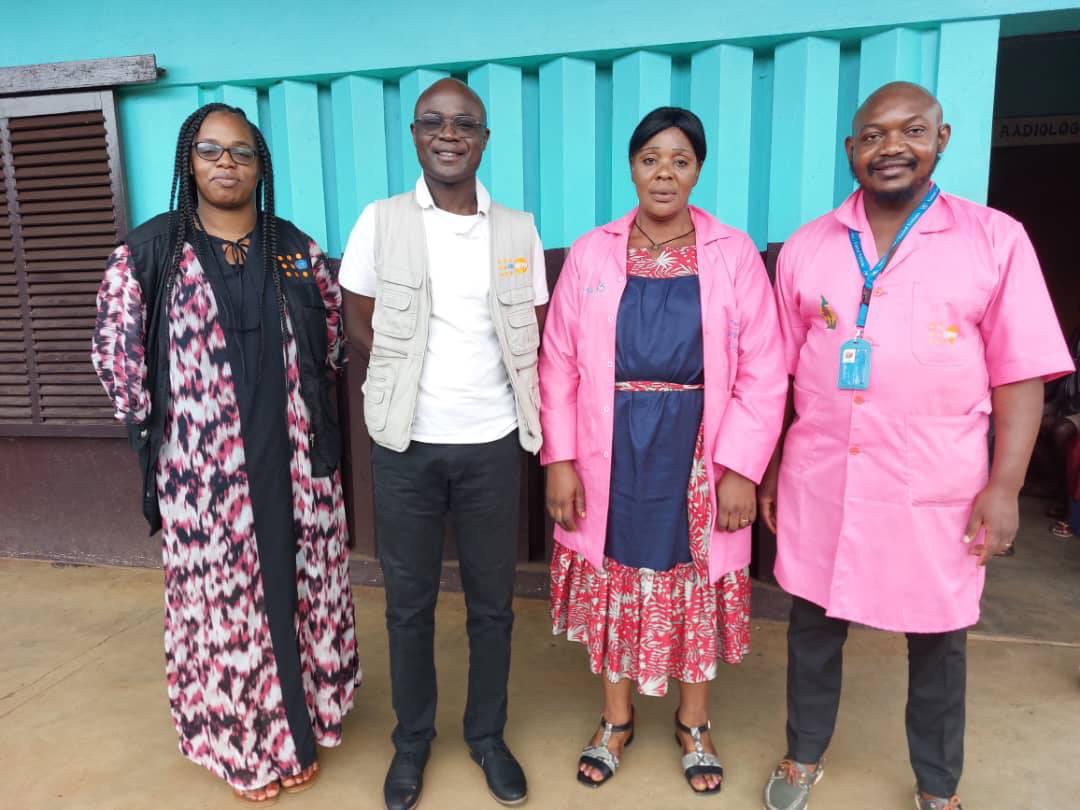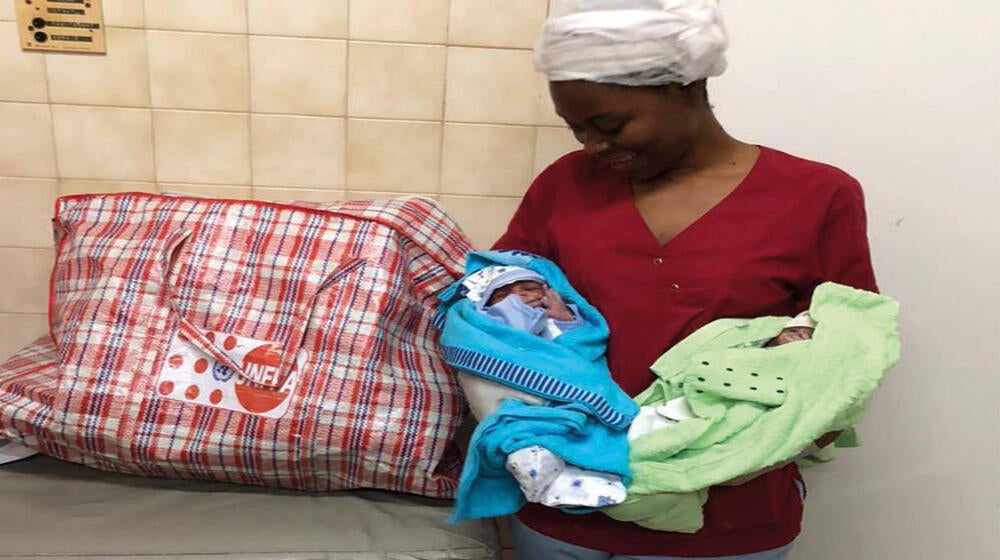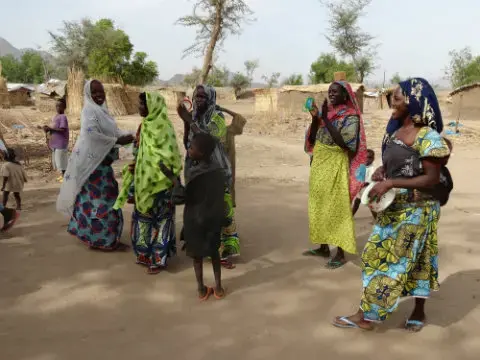
antenatal counselling
session, teaching
pregnant women
how to breastfeed.
Photo dredit:
UNFPA 2023
The socio-political crisis in the North West and South West Regions has forced as many as 715,000 persons to flee. A significant part of these persons have become Internally Displaced Persons (IDP) in the neighbouring West and Littoral Regions, where they face many existential challenges and fight for survival. Due to the large number of persons in need, only a few may benefit from humanitarian response initiatives. It is in this light that UNFPA opened a working station in Bafoussam and another in Douala in 2020, providing lifesaving sexual and reproductive health and Gender-based violence response services to women and girls affected by the crisis.
Providing maternal and Newborn care in emergencies to vulnerable women and girls from the IDP and Host communities is one of the prioritized interventions. As part of a humanitarian project funded by the United Nations Central Emergency Fund (CERF), UNFPA, the United Nations Sexual and Reproductive Health Agency, has sustained the deployment of five midwives at the Foumbot District Hospital, the Regional Hospital of Bamenda in the North West, the Regional Hospital of Buea in the South West, and at the District Hospitals of Bonassama and Deido in Douala in the Littoral Region.
It was reported from January 2022 to May 2023, that midwives deployed by UNFPA reached 86,705 women and girls. Among them, 22,022 received antenatal and postnatal care; while 29,298 received safe birth assistance; 20,364 became new family planning users and 422 received GBV response and prevention services. These midwives greatly contribute to reducing the risks of maternal and newborn deaths, the unmet need for family planning and the destructive effects of gender-based violence in humanitarian settings.Thanks to the CERF funding and the support of other humanitarian stakeholders, including the Implementing Partners, UNFPA has kept contributing to delivering a world where every pregnancy is wanted, every childbirth is safe and the potential of every young person is fulfilled.

midwives deployed in the West
Region. Photo credit: UNFPA
Cameroon 2022



